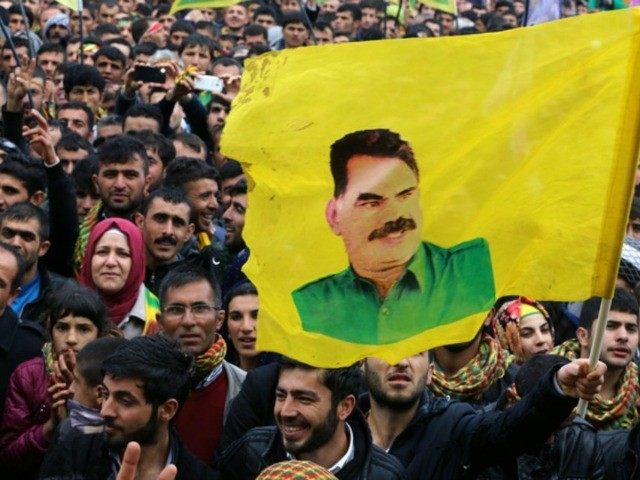A clash between the Marxist Kurdistan Workers’ Party (PKK) and Turkish armed forces (TSK) left five militants dead and wounded four Turkish soldiers. The fight occurred despite the PKK leader’s call for a ceasefire in March. Now the fights threaten to end fragile peace talks while pro-Kurdish groups accuse Turkey of staging the attacks.
The PKK was founded in 1978 and is considered a terrorist organization by the U.S., NATO, and European Union. It was formed, among other rebel groups, to fight for an independent Kurdistan, or at least greater autonomy in Turkey, and its ideology is largely based in Marxism.
The conflict caused almost 50,000 deaths in the past three decades. Turkish authorities and the CIA captured Abdullah Öcalan, the leader of the PKK, in Kenya in 1999. A peace process started in 2012 in which the Turkish government pushed Ocalan to disarm the PKK. Ocalan never did, but since the PKK took up arms against the Islamic State (ISIS/ISIL) in Syria and Iraq, this has helped partially shed “their pariah status” with some Kurds. The organization helped save the Yazidi minority and retake the city of Kobane.
Cezmi Budak, the co-leader of the pro-Kurdish People’s Democratic Party (HDP), died in the clash. At a rally on Tuesday, Selahattin Demirtaş, the co-chair of the party, “accused the Turkish General Staff Headquarters of ‘provocation’ meant to serve the ruling Justice and Development Party’s (AK Party) political agenda ahead of the elections.” Turkish President Recep Tayyip Erdoğan is a member of the AK Party.
“What transpired in Ağrı yesterday was anything but a clash, rather it was a staged operation, very carefully planned,” he shouted at the crowd.
The TSK claimed the PKK fired upon the Turkish troops on Saturday in Ağrı, while the PKK vows the Turkish soldiers fired first. The troops were “securing an area” for a spring festival, after the government received information it would “promote the ‘separatist terror organisation.’” That is when the army “sent armed helicopters, reconnaissance jets and a commando unit.” But Demirtaş insists the PKK/HDP members went in to rescue the soldiers.
“They stalled for those soldiers to die, they did everything in their power to ensure those soldiers perished,” he continued. “The TSK left 15 soldiers in a combat zone, eight of them wounded. Why did they fall back while leaving those wounded soldiers in a combat zone[?] They wanted those wounded soldiers to die there, hoping it would add to the AK Party’s vote. So then what happened? Our friends went to save those soldiers and recovered the wounded soldiers from the area.”
Prime Minister Ahmet Davutoğlu said Demirtaş lied. But a statement from TSK contradicts Davutoğlu and proves HDP members did help the Turkish soldiers:
The efforts of locals who rushed to the conflict zone during the aero-medical evacuation of four of our personnel who had been injured during a clash with the separatist terrorist organization [PKK] in the Yukarıtütek village of Ağrı’s Diyadin district on April 11 deserve admiration. These efforts have shown the great extent of the loyalty and love of our citizens toward Turkish soldiers and have served as a good example of the unity and solidarity of our nation. We thank our citizens and wish them a peaceful life with good health and happiness.
The PKK’s Marxist ideology places it in the same community of Turkish terrorist groups as the Revolutionary People’s Liberation Party/Front (DHKP-C), which on March 31, stormed an office in Istanbul and murdered prosecutor Mehmet Selim Kiraz. Hundreds of people attended the funeral.
“This attack was not only targeting our deceased colleague but also our nation,” Justice Minister Kenan Ipek told the crowd. “It is time to band together against terrorism. It is time to say ‘We are all Mehmet Selim.'”
While tensions are still fresh, “the Istanbul Film Festival canceled its Golden Tulip competitions after the Culture and Tourism Ministry moved to block the Sunday premiere of ‘Bakur/North’ —a documentary on Turkey’s outlawed Kurdistan Workers’ Party, or PKK.” In response, other filmmakers canceled their screenings. The government denied censorship but reminded the filmmakers they cannot showcase “terrorist propaganda.”
Erdoğan has expressed wishes to rid Turkey of the parliamentary system to implement a presidential system. His opponents believe he will use the change to place Turkey under an authoritarianism government. His moves as prime minister and president just might prove his opponents are correct. Turkish officials constantly arrest, fine, or bully companies to fire people over insults against Erdoğan on social media. He recently claimed Turkish businesses are spoiled and “don’t know their place” or “have a sense of fairness.”

COMMENTS
Please let us know if you're having issues with commenting.